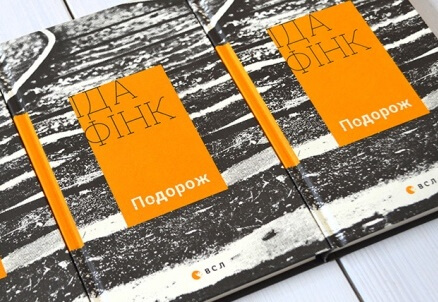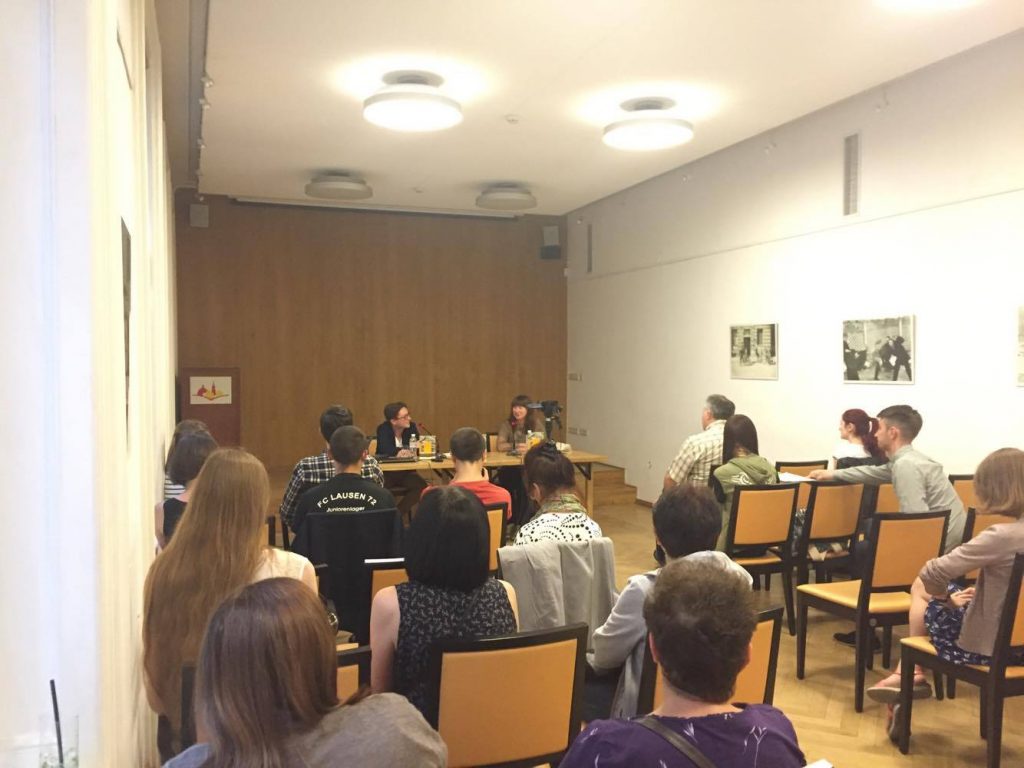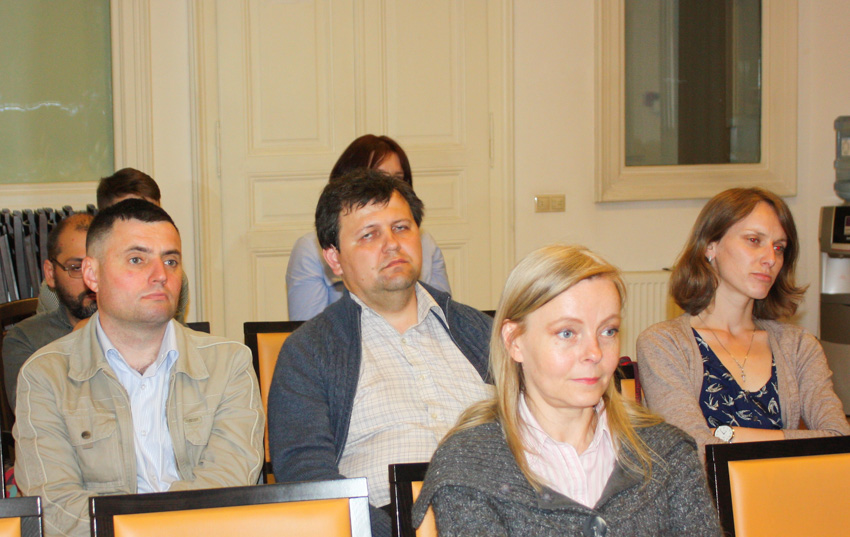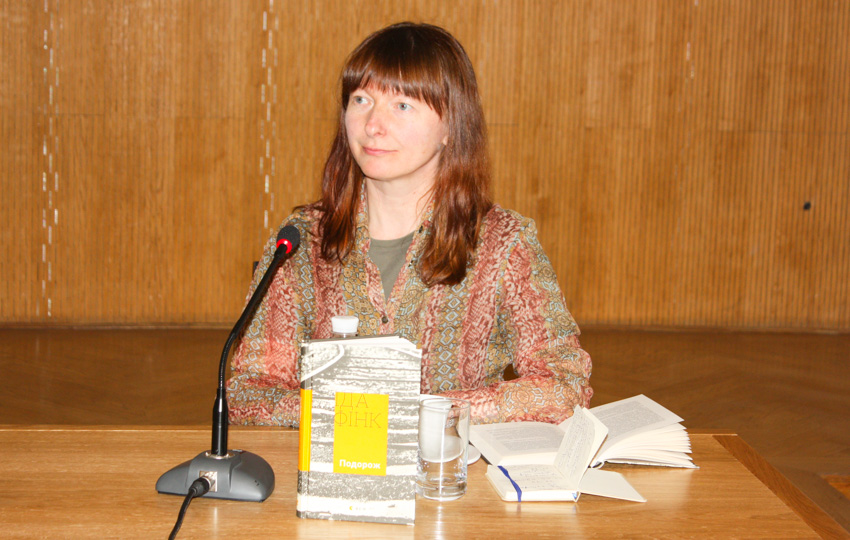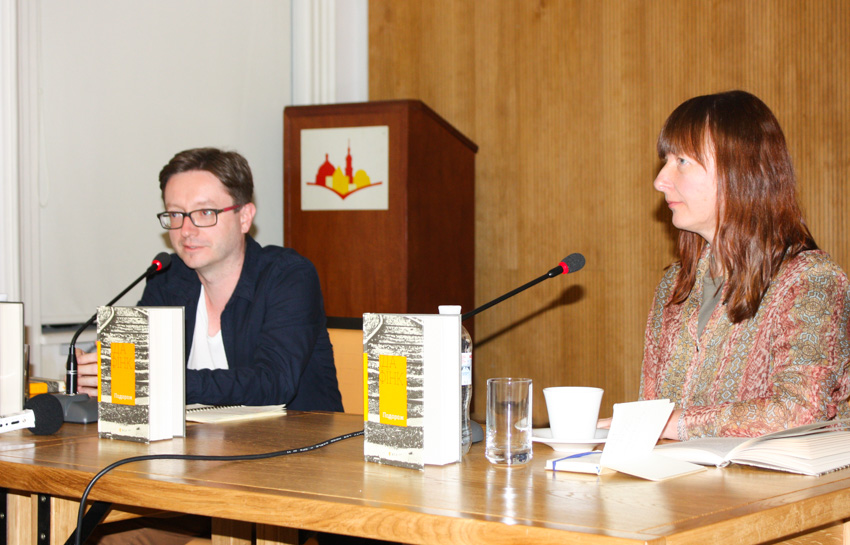The Journey
June, 15, 2017 / 6.00 pm
Center for Urban History, Lviv
There will be a presentation of the book "The Journey" by Ida Fink and a discussion on the role of literature in dealing with complicated historical topics.
"The Journey" by Ida Fink is a "whispered" history of the Holocaust in the cities of Zbarazh, Ternopil, and Lviv. There are two sisters who experienced the turbulent and exhausting arrests, the forced labour, concealment, persecution and escape in the Nazi Germany, but managed to survive despite all. The story could have been a documentary. However, the fact does not change anything for the book. It is about a typical Jewish journey on the verge of life and death. It is a journey beyond time, but also largely contextualized in the period of the Second World War. This typicality is scary, and is presented by means of an accentuated tranquil "post-monologue" of one of the sisters.
Literature has largely influenced the change of attitudes to Jewish heritage in Poland. The most significant voices in the discussion on the problems of Polish-Jewish relations in the second half of the 1980s were coming from historians of literature, such as Jan Blonski and Jaroslaw Marek Rymkiewicz. It was for literature that managed to find the most personal tone to "put into words" the abovementioned subjects. The publication of the Ukrainian translation of Ida Fink’s "The Journey" is an opportunity to talk about the situation thereon in Ukraine.
This topic in particular was addressed by Ostap Slyvynskyi in a landmark article "What do Writers Have to Do With History Today: a Polish Master Class for Ukraine": "...the most interesting literature is born at the intersection of identities, memories, and different national versions of the past. It is the literature that not only smoothes the sharp edges of the monologic versions and blurs their boundaries but also [...] highlights the points where they unexpectedly cross and even change places. That is why historical (or history oriented) literature can also be a powerful factor of reconciliation. And again – if it only wishes to."
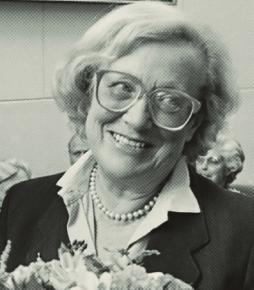
Ida Fink
a Polish writer of Jewish origin. She was born in Zbarazh to an educated Jewish family; her father was a doctor, her mother was a teacher. She studied music in the Conservatory of Polish Music Society in Lviv. After the Nazi occupation, she was placed into a Zbarazh ghetto, together with her father and her sister. In 1942, she got away from the ghetto with her sister, and had been in hiding till the end of war. Upon the Second World War, she lived in Poland. In 1957, she immigrated to Israel. She was member of the Union of Polish Writing Authors of Israel. Fink’s prose mostly focuses on the subjects of the Holocaust. Her works were translated into English, French, Hebrew, German, Danish, Norwegian, Italian, and other languages.
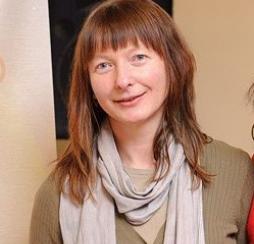
Natalka Rymska
a translator, editor, essayist. She translated from Polish the article by Jan Blonski “Poor Poles Are Looking at the Ghetto”that was instrumental in a Polish-Jewish dialogue; and a correspondence of Jerzy Giedroyc, essays and articles by Andrzej Mencwel, Bogumila Berdychowska, Grzegorz Motyka, Wlodzimierz Medrzecki, Joanna Tokarska-Bakir, a.o. She was editing the Ukrainian version of “Szkice Piorkem” by Andrzej Bobkowski (Війна і спокій) (“Krytyka”, 2006). In 2011, she published in Krytyka her translation of the “Drohobych dilogy”, the “Atlantis” and the “Moon Land” by Andrzej Chciuk. In the early 2017, the “Staryi Lev” Publishing published her translation of “The Journey” by Ida Fink. She published her essays and articles in Krytyka, Zaxid.net, Zbruc.eu, Culture.pl, a.o. she works in the Adam Mickiewicz Institute.
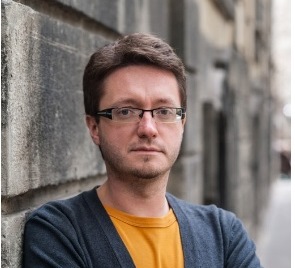
Ostap Slyvynskyi
is a Ukrainian poet, translator, and essayist. He translated, among others, the works by Andrzej Stasiuk “On the Road to Babadag” (Kyiv: Krytyka, 2007); Olha Tokarchuk “Runners” (Kharkiv: Folio, 2011); Marcin Swietlicki “64 Poems About Vodka and Cigarettes” (Kharkiv: Folio, 2011) – jointly with Andriy Bondar and Serhiy Zhadan; Jacek Hugo-Bader “White Fever” (Kyiv: Tempora, 2012); Mikolaj Lozinski “Reisefieber” (Lviv: Piramida, 2013); Marek Bienczik “The Book of Faces” (Lviv: Piramida, 2015); Jacek Podsiadlo “High, Close. Selected Poems” (Brusturiv: Discursus, 2015); Ignacy Karpowicz “Sonka” (Kyiv: Komora, 2015), a.o.
